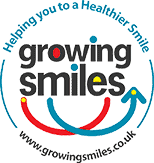* We are working on the time line pages.. slowly! Have a look here in the meantime. Please call back or contact us if you need something you can’t find info@growingsmiles.co.uk
Most Common Diseases & Conditions:
Tooth decay (dental caries)
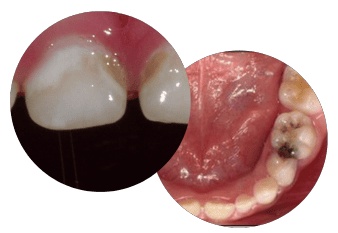
Tooth wear (erosion, attrition)
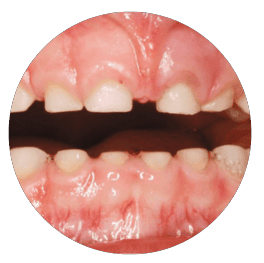
Major Risk Factors Which Contribute to Problems:
- Diet – sugar containing foods and drinks
- Little or no fluoride around teeth
- Poor oral hygiene
Everyone in this Age Group Should Aim for:
- Eat a healthy diet
- Adults brush children’s teeth
- Use fluoride toothpaste
- Spit out after brushing but don’t rinse
- Regular dental care
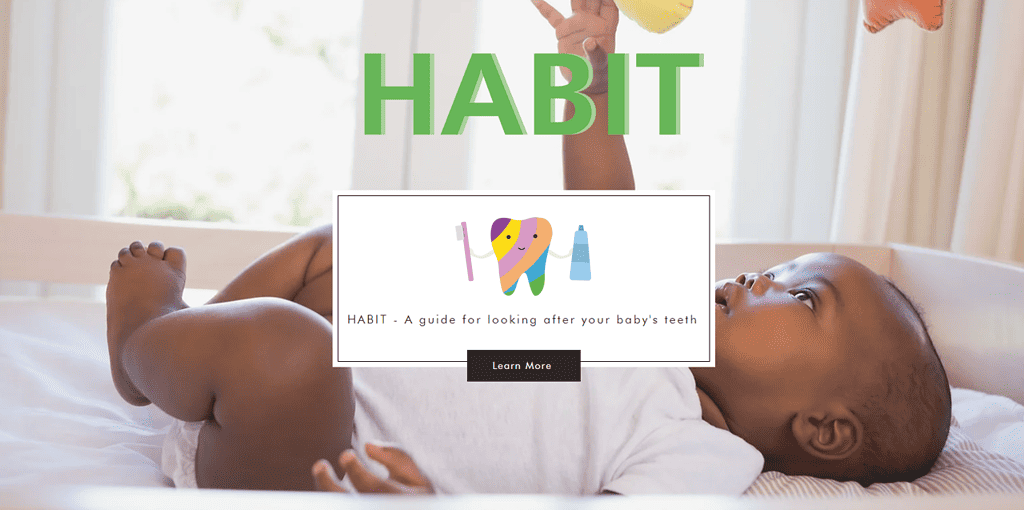
The University of Leeds Dental School has a great website supporting healthy habits for life. It aims to help every child grow up free from tooth decay. Have a look – lots of great advice, videos and links.
Inside the mouth – Baby Teeth Matter – they aren’t all replaced until around 12 years Baby teeth act as a guide for the permanent teeth erupting into the correct position. If baby teeth are lost or removed early before the permanent tooth is ready to erupt the permanent tooth may not erupt correctly. First permanent teeth – when they erupt and where to look for them. Variations in eruption, shape, size and colour. Tooth decay – how to spot early signs by lifting the lip and looking inside. Developmental anomalies and poorly mineralised (formed/calcified) teeth.
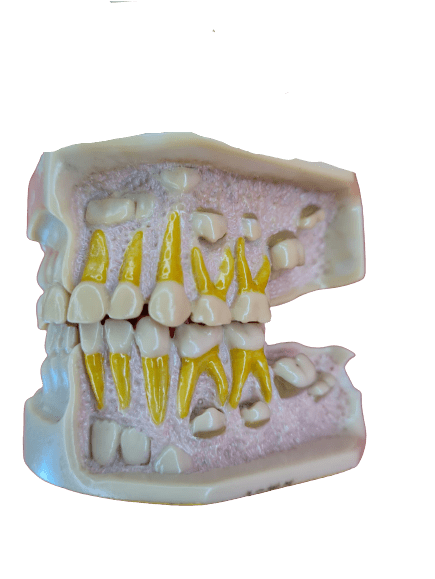
Baby Teeth Matter! All the baby teeth have usually erupted into the mouth by 3 years. The first permanent teeth arrive in the mouth around 6 years but look out – it is usually the first permanent molar which arrives BEHIND all the baby teeth. These are easy to miss if you don’t know to look for them. The incisors are replaced by permanent teeth fro around 6 years but not all the baby teeth are replaced until around 12 years of age. The baby molars – often the ones where cavities develop are some of the last baby teeth to be replaced by permanent teeth.
The first permanent teeth to erupt are usually the first molars. They arrive behind all the baby teeth – one in each corner of the mouth. They are often mistaken for another baby molar and are easily forgotten when cleaning. Little ones don’t have the ability to clean teeth thoroughly until they are around 8 years old – so keep helping them. Make sure you are cleaning those new teeth – they have to last a lifetime!
The lower incisors start to wobble around the same time. The permanent tooth pushes out the baby tooth, whose root shrinks back ready to give way to the ‘big second’ tooth. Sometimes it can appear there are two rows of teeth – don’t worry. Your child is growing and the jaw grows to accommodate these bigger teeth – even if it does all look a bit muddled for a while.
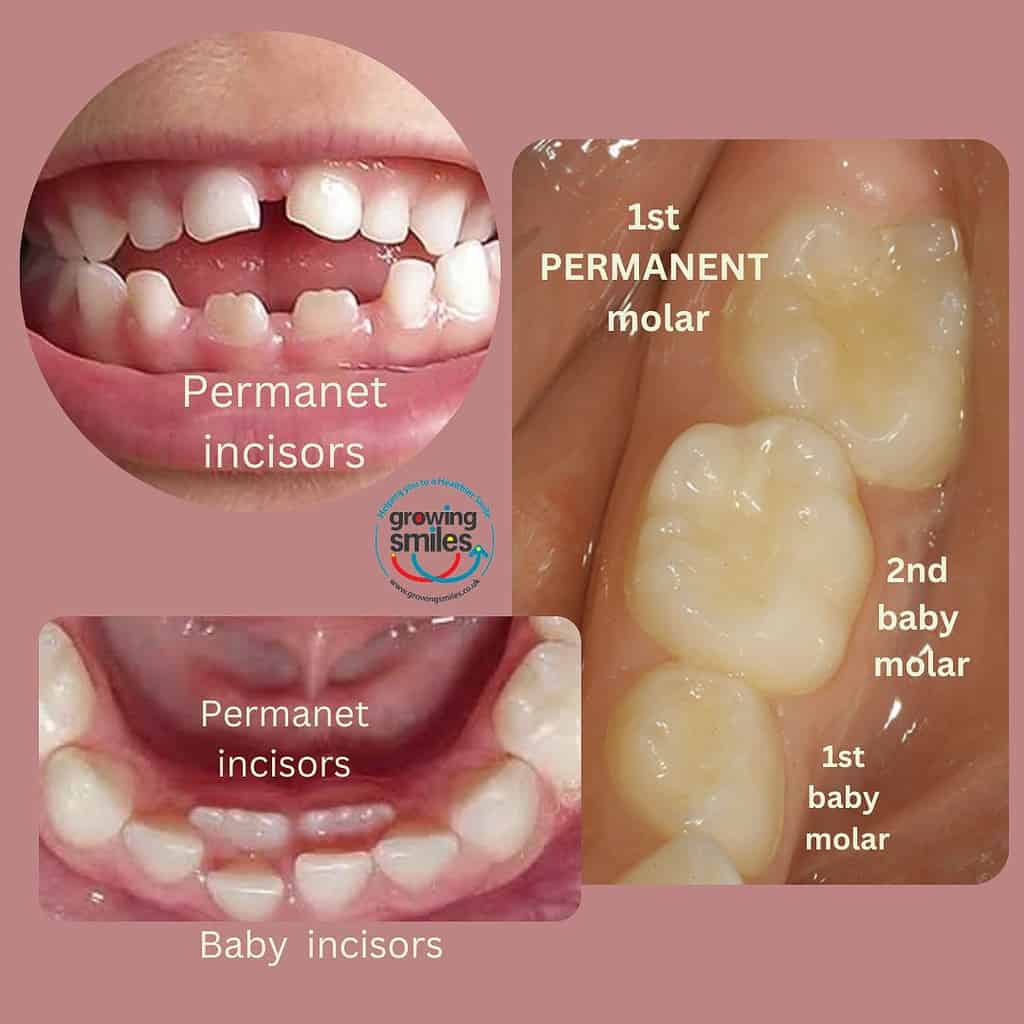
Grinding/tooth wear
Lifestyle, Health and Wellbeing – General health. Autism and sensory issues relating to oral health. Medicines, Child care, Trauma, Grinding, Dummy/digit sucking and its impact on shape of teeth and oral health.
Oral hygiene – Toothbrushing. Establishing oral care routines. Supporting oral hygiene. What to use – toothpaste and toothbrushes. Fluoride toothpaste – recommended fluoride level for this age. Flavour – mint and alternatives. Tips for brushing the teeth of a small child. When to clean teeth and why this matters.
Diet and Nutrition – Mealtimes. Snacks. Drinks. Bedtime food/drink. Sugar – free sugars, hidden sugars and what low sugar and sugar free mean. Sugar swaps. Fussy eaters. Allergies and special diets.
Professional dental care – Family dental visits. Preventive care – Fluoride and Fissure sealants. Managing anxiety with dental care.
Lifestyle, Health and Wellbeing – Health, Medicines, Child care, Trauma, Grinding, Dummy/digit sucking
Childcare and Grandparents.
Oral hygiene – Toothbrushing, Who, When, Where, What and How
Toothpaste- fluoride content. How much to use.
Dry toothbrushing
Diet and Nutrition – Mealtimes, Snacks, Drinks, Fussy eaters, Allergies.
Professional dental care – Family dental visits. Preventive therapies – Fluoride and Fissure Sealants
Regular dental visits build confidence and reduce anxiety.
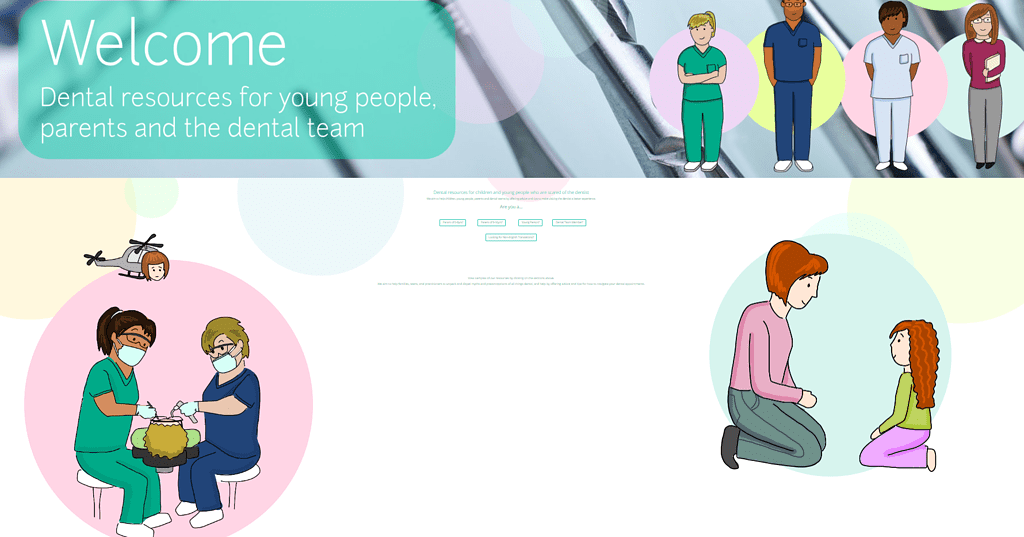
Worried about going to the dentist? We recommend visiting this website which has advise and tips to make visiting the dentist a better experience.
